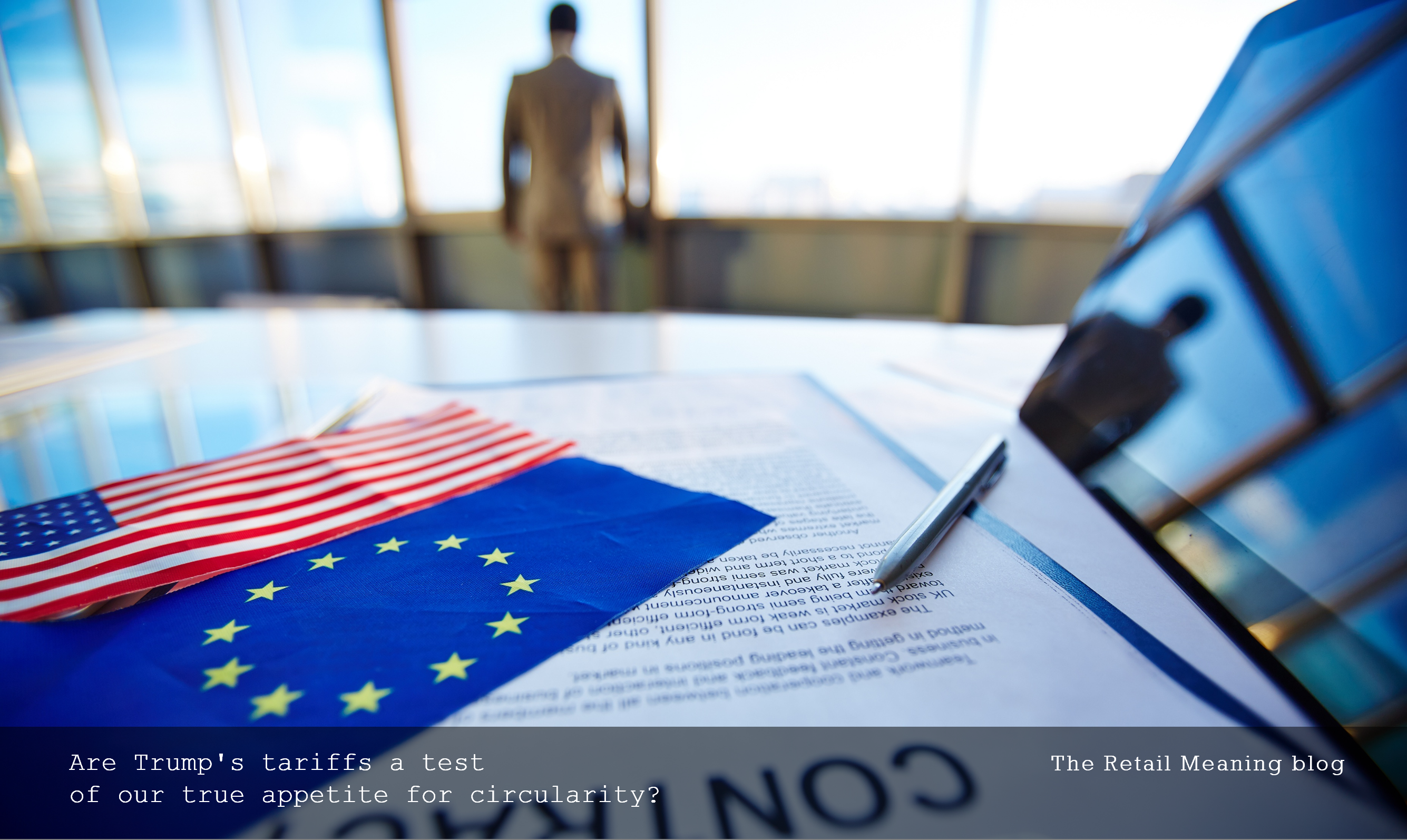The continuing trade wars led by Trump’s tariffs have the stock markets tumbling, whilst manufacturers, producers and retailers are re-calculating their plans to continue turning a profit, or even to survive.
We have governments throwing out ethical & sustainable policies as they scramble to get the best trading deals for each country. And we have consumers from the US to the UK and all across the world braced to feel the impact of higher prices.
Ironically, what we are seeing through a very blunt and inappropriate tool, is the introduction of circularity in the US, and pressures to follow elsewhere. Trump wants a US economy that produces, sells and buys within its own borders. It is throwing out the linear global supply chains with their wealth inequalities, to be replaced by a circularity where economic growth is distributed across its citizens.
Whilst sustainability is far from the President’s motives, and indeed whether the tariffs are just temporary scare-mongering to leverage better trading deals for the US, the implications for circularity are important, particularly regarding our appetite for it.
For example, for those of us who see that the only permanent way to achieving a healthier circular fashion industry, is to dramatically reduce its output and to make supply more local, then we should be cheering in the streets. Reduced circular consumption will feed into reduced production from fewer distant manufacturing brands, with more curated local production.
This should lead to a reduction in CO2 emisions, water -consumption, environmental pollution and the exploitation of our natural resources.
However, we live in a connected economy where, as the monthly obsession that economists have with consumer spending clearly shows, our lives and our livelihoods are very dependent on how much we all spend.
The more consumption, the more things we buy, then the ‘healthier’ the economy is, the more employment we have, the more money in our pockets and the happier we generally feel about our lives.
And of course permanently lower consumption, particularly from the abrupt impact of overnight tariffs, will cause a substantial initial shock to a society that has not realistically planned for the alternative ways of keeping its economy healthy. It will involve the closure of significant retail businesses, more empty shops and empty high streets, unemployment, higher prices. The hit will impact our taxes, our services and the fabric of our daily lives.
The impact on those countries and societies where low-cost production has shifted at our bequest will be even more dramatic. Despite concerns over ethical working and local pollution much of the populations survive from their involvement in mass fashion production. How can they suddenly find new jobs and income?
But the stark fact is that the planet does require a systemic shift to circular economies. And significantly these economies have to become more regional, national and local. Circular economies will only truly work when there is a balance of wealth between all parties in the circle.
The ‘unhealthy’ ethical & wealth imbalances and exploitations of the global manufacturing processes, must be replaced with ‘healthier’ regional ones where everyone is healthier and wealthier as a result.
This can all lead to a ‘healthier economy’ in every sense, contributing to a repaired and ‘healthier planet.’ Resulting in a fairer and more balanced society.
But this will have to be a steady and considered journey. When we have driven on one-side of the road all of our lives, then for society to rapidly swap to the other side, can only result in hazardous conditions, with terrible fatalities.
Can a more planned approach to permanent sustainable circularity for all of the world’s economies with new values, new habits, new attitudes, rules & regulations, and also new and life-affirming benefits and rewards, be achieved to deliver our healthier world?
Clearly, it will not be easy, and we had all better brace ourselves for the ride.
And if the thought and impact of Trump’s tariffs continues to be stock-market falls, unscrupulous trading deals, economic recession, and a consumer outcry at the loss of their ‘low-price, spoilt for choice’ shopping ways, then are our governments, our brands, our economies, and most of all, ourselves as citizens of the planet, really ready to make the journey to sustainable circularity?
